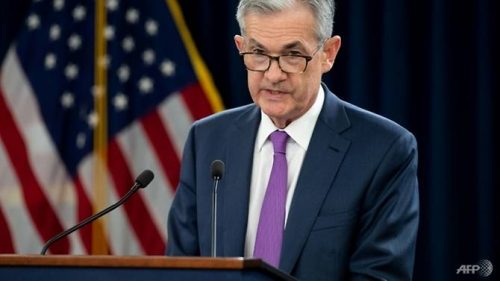HONG KONG, Dec. 20,, Asian markets slumped Thursday, tracking big losses on Wall Street after the Fed defied unprecedented pressure from Donald Trump and raised interest rates, sparking fears the move could choke economic growth.
The Dow slid to its lowest level of 2018 after the US Federal Reserve, as expected, raised rates for the fourth time this year.
But markets reacted badly after Fed Chairman Jerome Powell said the bank would not shift course on reducing its balance sheet.
Investors had hoped for a less aggressive approach amid concern that global growth is slowing.
“The Fed’s been a huge friend of the stock market and they are now a little bit of an enemy and (will) probably become worse of an enemy before this is all over,” Bob Doll, Nuveen chief equity strategist and senior portfolio manager, told Bloomberg.
The Fed now projects only two interest rate increases, down from three previously, as it trimmed its forecast for US growth and inflation.
Stephen Innes, head of Asia-Pacific trade at OANDA, said the “Fed delivered a dovish hike, but clearly, there wasn’t enough affirmation in the statement that the Fed was close to pausing or ending their interest rate hike cycle sooner than expected”.Some analysts were puzzled by investors’ reaction.
Ray Attrill, strategist at National Australia Bank, said the post-Fed sentiment was “a bit surprising” given the bank stressed a “gradual” pace of rate hikes next year.
But the spillover from the rate hike continued to rattle investors in Asia Thursday, deepening concern over global growth prospects which are already facing headwinds from President Trump’s trade war, a slowing Chinese economy, and potential turmoil from Britain quitting the European Union.
Efforts to resolve the trade war between the world’s top two economies are ongoing, with US Treasury Secretary Steven Mnuchin saying Washington and Beijing were planning to hold meetings in January to negotiate a broader trade truce.
– Trade war truce –
Tokyo led the downward charge in Asian stocks Thursday, sliding 1.7 percent. The Nikkei was little changed after the Bank of Japan left rates unchanged, as the threat of trade protectionism and tax rises cast a pall over the economy.
Shanghai was down 0.5 percent, even after the People’s Bank of China said it would supply lower-cost liquidity for up to three years to banks willing to lend more to small companies, as policy makers aim to shore up the flagging economy.
Hong Kong, Seoul and Sydney were also lower.
Wednesday’s quarter-point hike in the US came after Trump repeatedly demanded on Twitter the bank hold rates, in what was regarded as the most public assault on the Fed’s independence in decades.
The US president has cited the dollar’s strength as a reason the Fed should stop raising interest rates because higher rates tend to attract foreign capital to a currency.
The rate announcement boosted the dollar, which rose slightly against the yen Thursday. On commodities markets, Brent crude slid Thursday, the latest twist in a tumultuous week, trimming gains from Wednesday’s rally.
“Oil prices reacted poorly to the Fed’s forward guidance which suggests the Fed remains on ‘auto pilot'”, Innes said.
Earlier Wednesday, European bourses pushed higher, led by Milan, which advanced 1.6 percent after the EU and Italy called a truce in their bitter row over Rome’s disputed 2019 budget, as the populist government agreed to put off signature reforms.
—
Asian markets slump after Fed hikes rates

